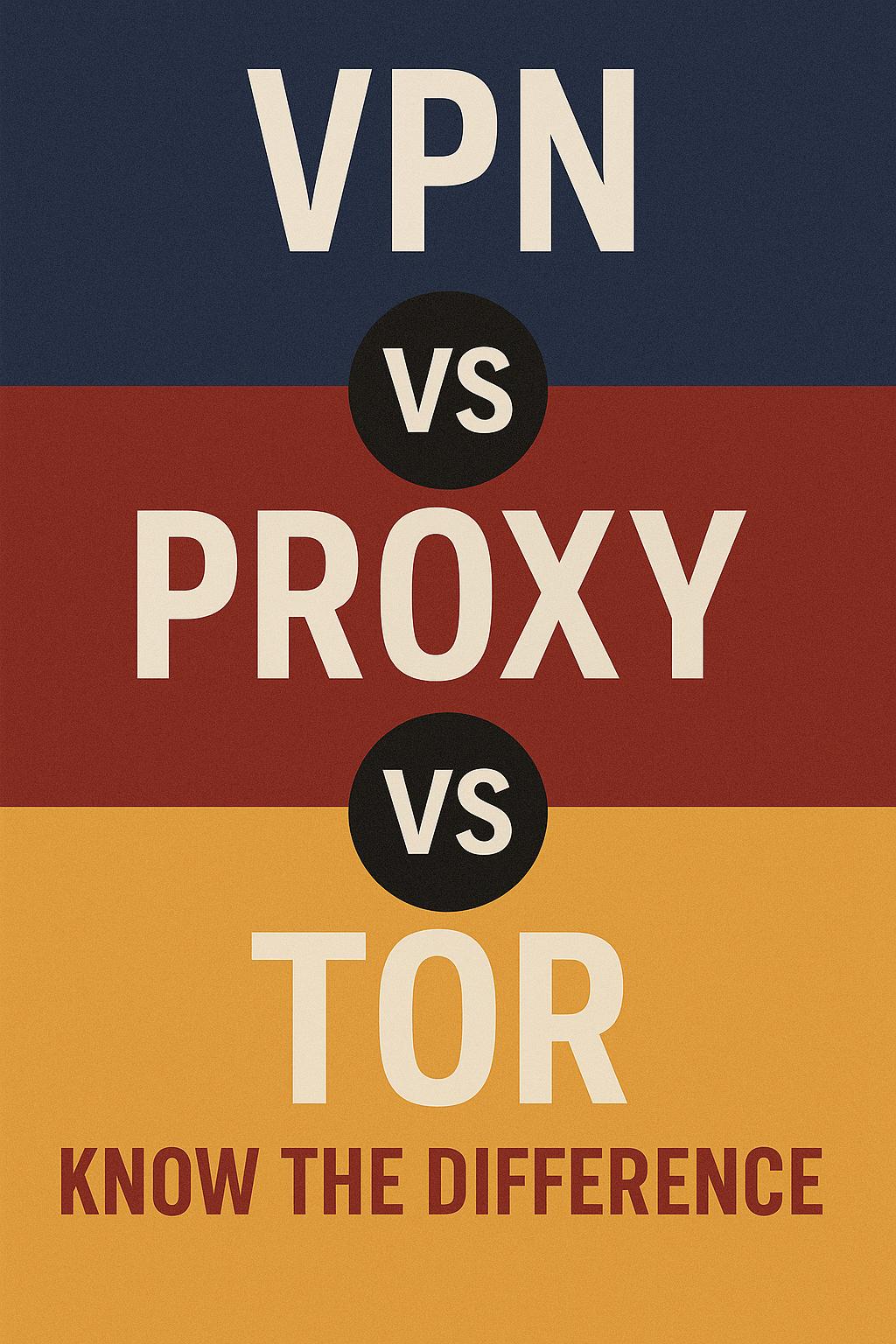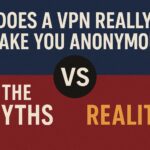Introduction
When it comes to privacy tools, three names come up again and again: VPNs, proxies, and Tor. They all claim to protect your identity, but they work in very different ways.
If you’ve ever wondered “Do I need a VPN or a proxy?” or “How is Tor different from a VPN?” — this guide will give you the clear, technical breakdown.
1. The Basics
What is a Proxy?
A proxy server acts as a middleman between you and the internet.
- Your request goes to the proxy.
- The proxy forwards it to the website.
- The website sees the proxy’s IP, not yours.
👉 Good for hiding your IP address, but no encryption.
What is a VPN?
A Virtual Private Network (VPN) encrypts all your internet traffic and sends it through a secure server.
- Your data is scrambled.
- Your IP is hidden.
- Works at the system level (all apps, not just the browser).
👉 Provides both encryption and privacy.
What is Tor?
Tor (The Onion Router) is a special network designed for anonymity.
- Your traffic bounces through multiple relays (servers) chosen at random.
- Each layer of the journey is encrypted (like layers of an onion).
- Very hard to trace the original sender.
👉 Excellent for anonymity, but very slow.
2. How They Compare
| Feature | Proxy | VPN | Tor |
|---|---|---|---|
| IP Hiding | ✅ Yes | ✅ Yes | ✅ Yes |
| Encryption | ❌ No | ✅ Strong | ✅ Multi-layered |
| Speed | ⚡ Fast (light) | ⚡ Moderate | 🐢 Very slow |
| Ease of Use | 👍 Easy (browser) | 👍 Easy (apps) | 👎 Complex |
| Best For | Quick IP changes | Privacy & security | Maximum anonymity |
3. Strengths and Weaknesses
Proxy:
✅ Quick, simple, lightweight.
❌ No encryption → unsafe on public WiFi.
❌ Only covers the app it’s set in (e.g., browser, not whole device).
VPN:
✅ Strong encryption + IP hiding.
✅ Works on whole device.
✅ Great balance of speed and security.
❌ Requires trust in provider.
❌ May be blocked by streaming sites.
Tor:
✅ Best for anonymity.
✅ Open source, community-run.
✅ Resistant to censorship.
❌ Extremely slow.
❌ Not practical for streaming or downloads.
4. Real-World Use Cases
- Use a Proxy if: you just need a quick IP change (e.g., checking region-locked content).
- Use a VPN if: you want security, privacy, and fast everyday use (streaming, work, browsing).
- Use Tor if: you need maximum anonymity (journalism, activism, research).
5. Can You Combine Them?
Yes — advanced users sometimes chain them:
- VPN + Tor: extra layer of privacy, but speed drops even more.
- Proxy + VPN: usually redundant (VPN already covers your IP).
For most people, a VPN alone is enough.
6. The Bottom Line
- Proxy → simple IP disguise, no real security.
- VPN → the best all-round choice for privacy, security, and usability.
- Tor → the tool for those who need serious anonymity and don’t mind slow speeds.
👉 If you’re trying to decide which to use, ask yourself: Do I need privacy, security, or anonymity?
- For everyday safety → VPN.
- For quick region swaps → Proxy.
- For true anonymity → Tor.
Conclusion
VPNs, proxies, and Tor are all valuable tools — but they serve different purposes.
- A proxy is like a forwarding address.
- A VPN is like a locked tunnel.
- Tor is like a maze of tunnels where nobody can see the full path.
For most users in 2025, a VPN is the right balance of speed, security, and usability.
🔗 Learn more:





